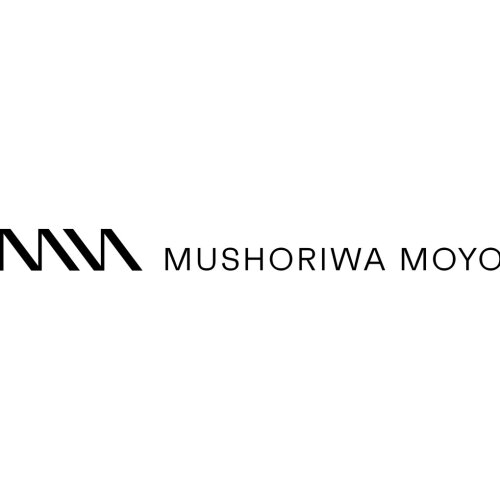Best Bad Faith Insurance Lawyers in Zimbabwe
Share your needs with us, get contacted by law firms.
Free. Takes 2 min.
Or refine your search by selecting a city:
List of the best lawyers in Zimbabwe
About Bad Faith Insurance Law in Zimbabwe
Bad Faith Insurance occurs when an insurance company fails to honor its contractual obligations to its policyholders with a fair and honest process. In Zimbabwe, like in many other jurisdictions, insured individuals expect compensation from their insurance company for valid claims. However, when these companies unjustly deny, delay, or underpay claims, it raises concerns of bad faith, opening the door to legal disputes. While the exact legal framework for Bad Faith Insurance can often be complex and continuously evolving, Zimbabwe provides legal remedies for policyholders who believe their claims have not been handled fairly.
Why You May Need a Lawyer
Engaging a lawyer may be necessary in several common situations relating to Bad Faith Insurance in Zimbabwe, including:
- The insurance company denies a claim without a valid reason or explanation.
- The insurer offers considerably less compensation than the claim's worth.
- There are unreasonable delays in the settlement process of a valid insurance claim.
- The insurance company misinterprets policy terms to deny claims.
- Personal injury or significant financial loss due to an insurer's refusal to pay.
- The insurer fails to promptly communicate important information about a claim.
In these situations, a legal expert can help you understand your rights and seek appropriate remedies under the law.
Local Laws Overview
The Insurance Act of Zimbabwe and associated regulations govern the conduct of insurance companies, intended to protect policyholders from unfair practices. Here are some key aspects of Zimbabwean laws that are relevant to Bad Faith Insurance:
- Contractual Obligations: Insurers are legally required to comply with the terms agreed upon in the insurance policy.
- Consumer Protection: The Consumer Protection Act provides additional safeguards against unfair commercial practices, including those in the insurance sector.
- Regulatory Body Oversight: The Insurance and Pensions Commission (IPEC) oversees the activities of insurance providers and addresses grievances from policyholders.
- Dispute Resolution: The legal system provides channels for arbitration and litigation in the occurrence of disputes between insurers and insured parties.
Understanding these laws can equip policyholders to enforce their rights more effectively when facing bad faith insurance scenarios.
Frequently Asked Questions
What constitutes bad faith insurance in Zimbabwe?
Bad faith insurance involves dealing with claim denials, unjust delays, or insufficient settlement offers that are not justified under the policy terms.
How can I determine if my insurer acted in bad faith?
If you feel the insurer’s actions were unjustified, such as lack of proper investigation, wrongful claim denial, or unreasonable delay, it could indicate bad faith.
Can I sue my insurance company for bad faith in Zimbabwe?
Yes, if you believe your insurer acted in bad faith, you can pursue legal action either through arbitration or court litigation processes.
What kind of compensation might I receive if I win a bad faith insurance claim?
Compensation may include the original claim amount, damages for financial losses, and potentially punitive damages if the insurer's conduct was particularly egregious.
How long does the process take to resolve a bad faith insurance claim?
The duration can vary considerably depending on the complexity of the case, the amount of evidence available, and the path chosen for resolution (arbitration versus court).
What should I do if my claim is denied?
Review the denial letter, compare it against your policy's terms, gather documentation, and consider consulting a lawyer to discuss your options.
Is there a deadline for filing a bad faith insurance lawsuit?
Yes, there are time limits known as "prescription periods" within which you must file a claim; a lawyer can provide advice specific to your situation.
Are there any costs associated with filing a bad faith insurance lawsuit?
Legal proceedings may involve various costs, including legal fees, court charges, and other related expenses, though some lawyers work on a contingency basis.
What documentation is necessary for a bad faith claim?
Important documentation may include the insurance policy, correspondence with the insurer, evidence supporting your claim, and any financial records of damages incurred.
Can an insurance company cancel my policy if I file a bad faith claim?
An insurer cannot cancel your policy simply because you file a bad faith claim, as long as you continue to meet your contractual obligations under the policy.
Additional Resources
Here are some resources and organizations that can provide further guidance and support concerning Bad Faith Insurance in Zimbabwe:
- Insurance and Pensions Commission (IPEC): Regulates the insurance sector and offers mediation services for disputes.
- Legal Resources Foundation: Provides legal advice and may offer support for low-income individuals experiencing legal issues.
- Consumer Council of Zimbabwe: Acts as a watchdog for consumer rights and assists in resolving consumer-related disputes, including insurance matters.
- Zimbabwe Lawyers for Human Rights: Offers legal assistance on various issues, including unfair insurance practices.
Next Steps
If you believe you are dealing with a case of bad faith insurance, consider taking the following steps:
- Gather Evidence: Compile all relevant documentation, including your insurance policy, communication records with your insurer, and evidence of financial loss or damage.
- Consult with a Lawyer: Engage a legal professional who specializes in insurance claims to evaluate your case and advise on potential legal action.
- Contact a Regulatory Body: Reach out to IPEC for mediation or filing a complaint regarding your issue with the insurer.
- Understand Your Legal Options: A lawyer can help explain whether arbitration or litigation is the best course based on the specifics of your case.
Remember, acting promptly and informedly can help protect your rights and potentially secure a more favorable outcome.
Lawzana helps you find the best lawyers and law firms in Zimbabwe through a curated and pre-screened list of qualified legal professionals. Our platform offers rankings and detailed profiles of attorneys and law firms, allowing you to compare based on practice areas, including Bad Faith Insurance, experience, and client feedback.
Each profile includes a description of the firm's areas of practice, client reviews, team members and partners, year of establishment, spoken languages, office locations, contact information, social media presence, and any published articles or resources. Most firms on our platform speak English and are experienced in both local and international legal matters.
Get a quote from top-rated law firms in Zimbabwe — quickly, securely, and without unnecessary hassle.
Disclaimer:
The information provided on this page is for general informational purposes only and does not constitute legal advice. While we strive to ensure the accuracy and relevance of the content, legal information may change over time, and interpretations of the law can vary. You should always consult with a qualified legal professional for advice specific to your situation.
We disclaim all liability for actions taken or not taken based on the content of this page. If you believe any information is incorrect or outdated, please contact us, and we will review and update it where appropriate.
Browse bad faith insurance law firms by city in Zimbabwe
Refine your search by selecting a city.











